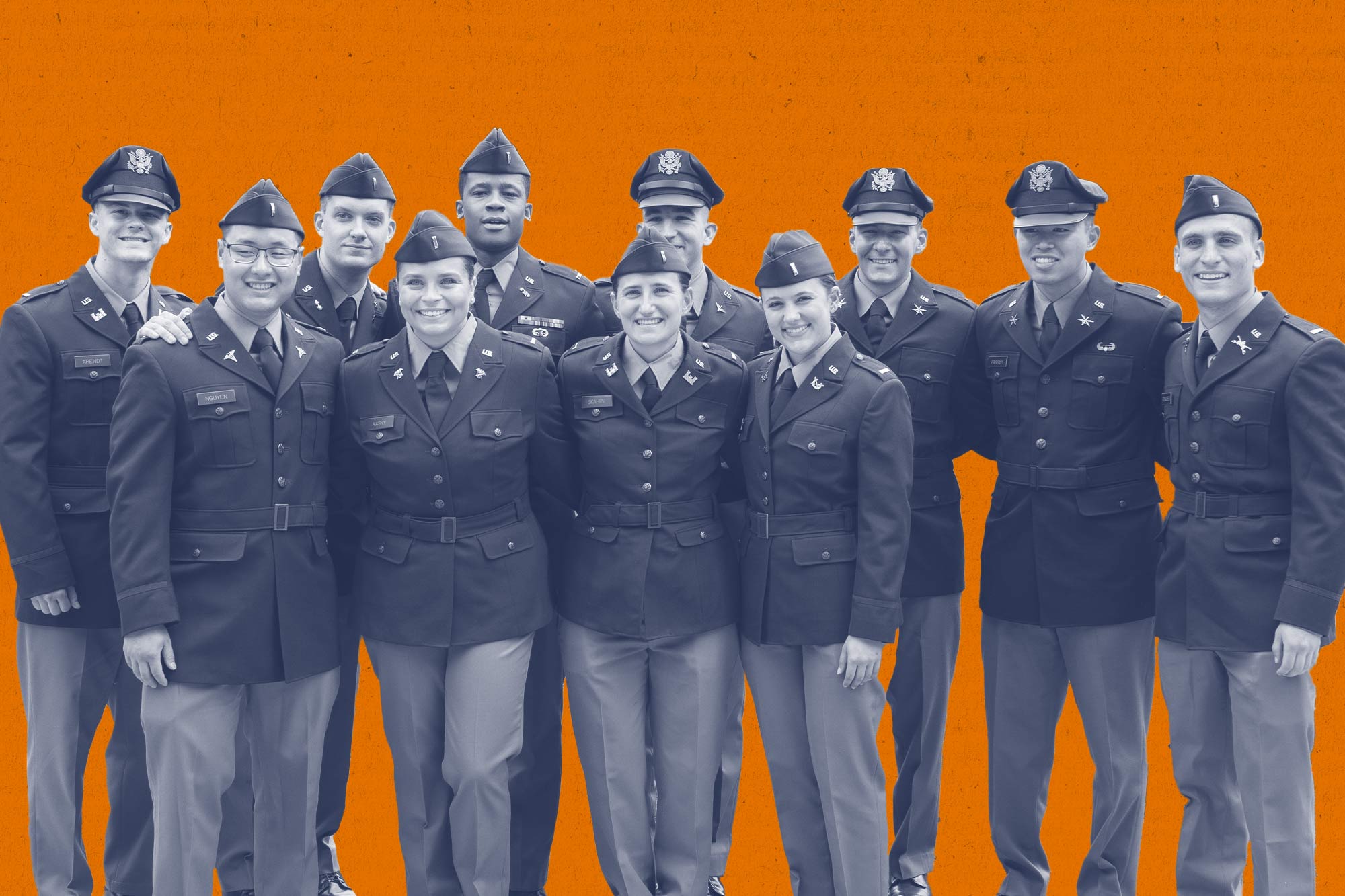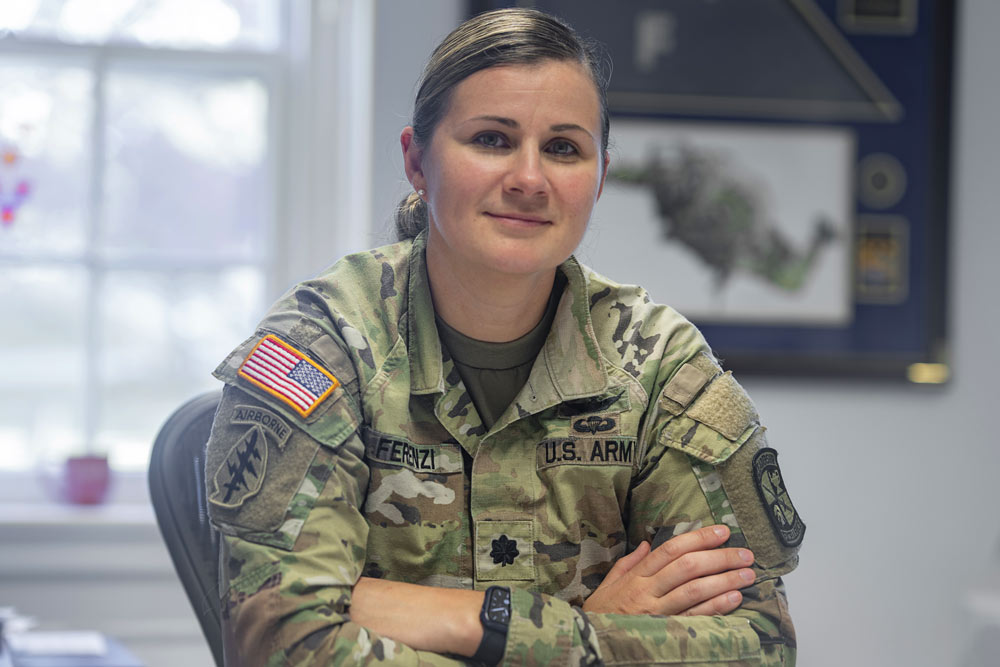The panels, each composed of three cadets and midshipmen from all three commands at UVA, will make presentations on numerous topics, beginning with cyberdefense, technology, engineering and physics on Wednesday, from 11 to 11:30 a.m., in Thornton Hall, room 238.
A panel concentrating on data science, medicine, analytics and chemistry will meet on March 27 from 11 to 11:30 a.m. in room 204 of the Chemistry Building.
The final panel will discuss law, policy, social sciences and history on April 10 from 11 to 11:30 a.m. in Nau Hall, room 441.
“We chose candidates from each respective academic area, if possible, so cadets in their fields could represent and articulate our program,” said U.S. Army Lt. Col. Elizabeth Eaton-Ferenzi, commander of the Army ROTC program. “We also looked at students choosing unique paths or who have high aspirations for their careers.”
Nelson said the military can offer students many career-based opportunities beyond the front lines of conflict. “Students can pursue careers in the military in a wide range of fields, from aerospace engineering and nursing, to organizational leadership, policy and law,” he said. “The military has a very robust infrastructure.”
“I hope that current UVA students who haven’t heard of ROTC will gain some exposure through these panels and become more curious about how they can serve and seek more out information,” Eaton-Ferenzi said.
Nelson said the panels have two objectives: growing our ROTC programs and reminding our community of the importance of our ROTC military presence on Grounds.
“We are interested in growing the recruitment numbers, but only as ROTC makes sense for each individual student,” Nelson said. “First- and second-year students, if they enroll in ROTC, can actually end up having full financial aid covered by the military. Students may not only have their undergraduate career paid for, but also have job security as they graduate.”
U.S. Navy Capt. Mike Rovenolt, commander of the UVA Navy ROTC program, added: “Naval ROTC believes the public service panels will further educate UVA students about the opportunities that the Navy and Marine Corps has to offer. Furthermore, we think the panels will help our UVA students understand that service in the military is perhaps the most crucial public service one can pursue.”
“The most important thing is that current students who have a desire to serve and are looking for a way to do it can connect with us, get integrated and join one of our programs,” Eaton-Ferenzi said. “I hope they also understand that there are many options and pathways to serve, such as active duty, the reserves, the National Guard, and various vocations, such as veterinarian, psychologist, doctor, attorney, pilot.”











